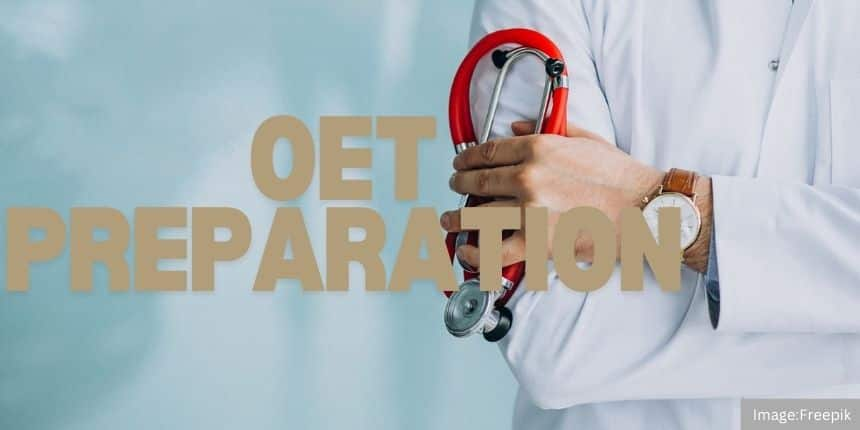OET Medical Vocabulary by Expert: Common Words, List, Preparation Tips
Building a medical vocabulary is crucial for success in the Occupational English Test (OET), especially for healthcare professionals aiming to work in English-speaking countries. Marco Delgado, Chief Experience Officer of the OET, offers valuable OET preparation tips to help candidates enhance their medical language skills effectively.
This Story also Contains
- Essential medical vocabulary
- Create mnemonics
- Engage in active learning
- Practice with real-life examples
- Stay curious and motivated

With a focus on essential medical terms, mnemonic devices, active learning techniques, and real-life applications, the guide on OET Medical Vocabulary equips aspirants with the tools they need to excel in the OET exam.
By preparing with OET study material regularly and staying motivated, one can confidently navigate the medical vocabulary required for the OET. One can read the article to learn the OET medical terminology and tips on how to build a strong vocabulary foundation.
Essential medical vocabulary
During the OET Test, you’ll encounter a range of medical vocabulary, including terms, phrases, and other colloquial medical language frequently used in the workplace.
To help yourself learn medical vocabulary, build an essential vocabulary bank, such as the one below, detailing each term, definition, and an example. For instance:
Term: Abrasion (noun).
Definition: An injury to the skin or other body tissue caused by rubbing or scraping. Simple alternate words include cut, graze, scratch.
Example: The patient has an abrasion on their knee.
Create mnemonics
Mnemonics are memory aids that can help you remember complex information. When studying, create acronyms, phrases, or associations that are easy to recall. For example:
To remember the checklist for a patient history structure, try CHAMPS – Complaint, History of presenting complaint, Allergies, Medication, Past Medical History, Social History.
Also Read: OET Sample Test
Engage in active learning
Active learning involves engaging with the material through various activities, such as role play, flashcards, and hands-on learning. This could include:
Quizzing yourself: Regularly quizzing yourself or having a family or friend test you will help reinforce your memory.
Flash cards: Flashcards are an effective tool for memorization. You can create your own or use apps that have pre-made medical vocabulary decks. Regularly reviewing these cards can help reinforce your memory.
Teaching others or role playing: Explaining terms and concepts to friends or family can enhance your understanding. This will also help prepare yourself for the OET Speaking sub-test.
Practice with real-life examples
Reading medical journals, articles, and textbooks will expose you to the terminology used in context. Pay close attention to how terms are used and try to understand their meanings within the context.
This will sharpen your skills for the OET Reading sub-test, and also improve your stamina in digesting large portions of text.
Stay curious and motivated
Medical vocabulary can be challenging, but staying curious and motivated can make the learning process more enjoyable. Set yourself small goals and be sure to take time to reward yourself for your achievements. Connect to your goals and intentions to remember why you are studying this material in the first place – fulfilling your dream to work as a healthcare professional overseas!
Mastering medical vocabulary is a gradual process that requires dedication and the right strategies.
However, by starting with the basic vocabulary, using effective study tools, engaging in active learning, and leveraging resources, you’ll be ready to take the OET Test. Stay consistent, practice regularly, and keep your end goal in sight.
Applications for Admissions are open.
Want to study in Ireland? Explore Universities & Courses
Study in Canada
ApplyExplore Universities, Courses & Subjects | Work while study
Study in UK
ApplyApply for upcoming intake & plan your journey
Study in USA
ApplyUniversities inviting applications | Get expert guidance
Study in Australia
ApplyShortlist best ranked universities & get expert guidance
